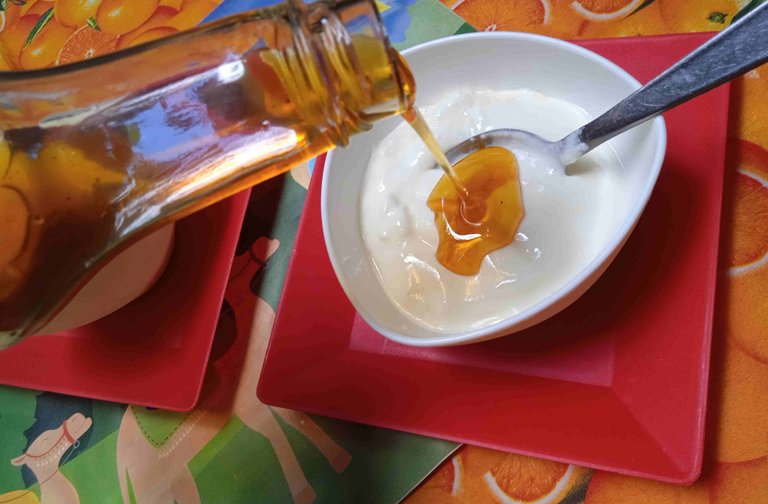
¡Saludos queridos foodies, feliz domingo! Dentro del mundo de la alimentación sana, existen unos alimentos que son muy beneficiosos para la microbiota intestinal y, por extensión, para la salud en general, y estos son los FERMENTADOS. Dentro de los fermentados hay una amplia variedad: Chucrut, quesos, kombucha, tejuinos, caratos, ayran, suero, kéfir, oxygala, yogurt, etc. y uno de los más conocidos y consumidos a nivel mundial es el yogurt, por eso hoy les compartiré mi receta de YOGURT HECHO EN CASA, receta muy sencilla, pero que a mí me trae gratos recuerdos, y cada vez que la hago me remonta a mi infancia.

Primero les pondré un poco de contexto: Soy venezolana, de padre y madre. Tuve la suerte de conocer a dos abuelas y un abuelo (mi abuelo Víctor, de quien ya he hablado en otros posts); pero no tuve la suerte de conocer a mi abuelo paterno, quien murió antes de yo nacer, sin embargo, la vida a veces te trae abuelos adoptivos, y ese fue mi caso, pues yo tuve un abuelo yugoslavo, más específicamente croata, un abuelo paterno adoptivo, mi abuelo Marko, mi abuelo Markovic.

Mi abuelo Marko llegó a Venezuela en un tiempo en que mi país era esplendoroso, amable, feliz; en una época en que estas tierras tenían décadas con los brazos abiertos, recibiendo inmigrantes de diversas partes del mundo, incluyendo Europa. Mi abuelo venía huyendo de la dictadura de Tito, pues siendo él de una familia adinerada, fueron perseguidos, encarcelados; y los bienes que ya tenían generaciones en su familia, fueron expropiados por el Estado. La familia de mi abuelo tenían un aserradero y grandes extensiones de bosques, que perdieron con la llegada de ese régimen a su país. En ese tiempo, mi abuelo ya había estudiado Ingeniería Agronómica en Yugoslavia, por lo que decidió emigrar, para garantizar una mejor vida para su esposa e hijos. No sé el año exacto de su llegada, pero creo que fue luego de la Segunda Guerra Mundial, quizás en la década de los 50.

Como él tenía una excelente preparación académica y experiencia en el área, siempre tuvo buenos trabajos y se adaptó rápidamente a Venezuela, pero su esposa e hijos no, ellos regresaron a Europa, específicamente a Austria, y mi abuelo se quedó solo aquí, sin familia. Luego de un tiempo, él coincidió en una empresa con mi padre, quien también era Ingeniero Agrónomo, y forjaron una bonita y larga amistad, al punto de que mis hermanos y yo lo adoptamos como abuelo. Recuerdo claramente que nos visitaba cada 15 días o cada semana, dependiendo del volumen de trabajo, y era hermoso verlo llegar, contento, feliz, siempre con una bolsa de golosinas, y siempre preguntando cómo estábamos, hablando, riendo. Lo mejor de todo era cuando él se ponía a cocinar, porque él y papá se metían en la cocina y hacían diversos platos, y una de las cosas que nos enseñó a hacer, bueno, le enseñó a papá y a mamá, y luego ellos a nosotros, fue el YOGURT.

Él decía que en su casa en Yugoslavia siempre había yogurt en la cocina, que era un alimento común, como sería la leche o el café con leche en una cocina venezolana, y también decía que era muy sano, que consumiendo yogurt todos los días, se podía envejecer fuerte y sano; entonces, fue un hábito que se adquirió en casa, aunque de forma intermitente, así como yo, también lo he mantenido de forma intermitente; sin embargo recientemente decidí retomar su consumo y hoy les diré cómo hacerlo, verán lo simple que es. Dicho esto, ¡vamos a la receta!
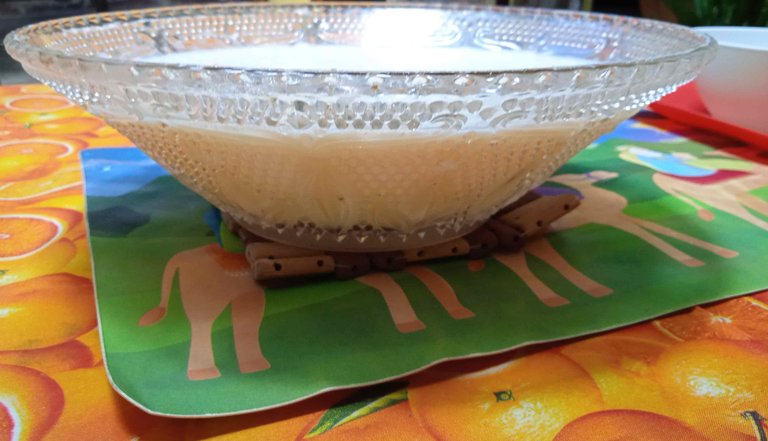

THE RECIPE / LA RECETA
Preparation time: This preparation is convenient to do from one day to the next, since the yogurt needs to rest undisturbed while it ferments, at least 8 hours, but its preparation itself, if you already have all the ingredients on hand , required only 5 minutes.
Servings: 1,150 ml of semi-solid yogurt.
I recommend making this recipe following the indicated quantities.
1 liter of boiled cow's milk (or made in boiled water), of good quality, although it can be made with goat or sheep's milk. Do not use pasteurized, skim, or lactose-free milk.
150 grams of firm yogurt.
Pot, blender, whisk, glass or stainless steel bowl, a large, clean cloth, cups, spoons, etc.
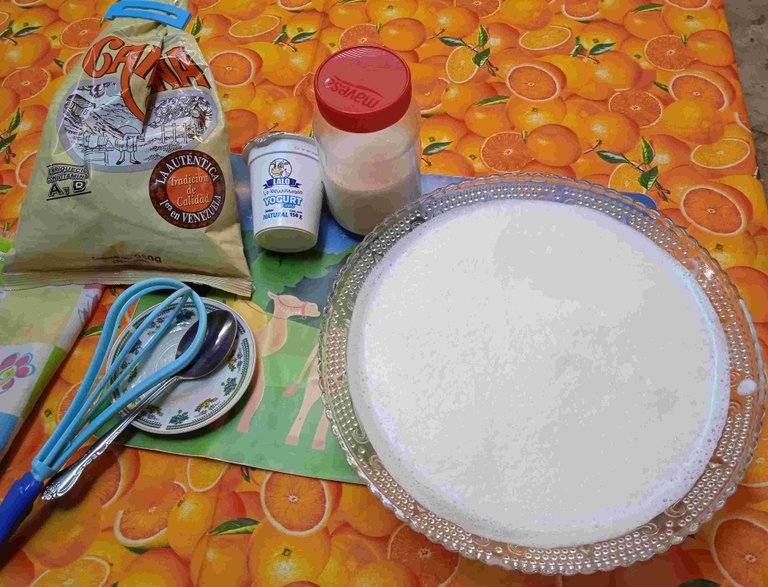
Tiempo de preparación: Esta preparación es conveniente hacerla de un día para el otro, pues se necesita que el yogurt repose sin ser molestado mientras se fermenta, al menos 8 horas, pero su preparación en sí, si ya tienes todos los ingredientes a mano, requerie sólo 5 minutos.
Raciones: 1.150 ml de yogurt semisólido.
Recomiendo hacer esta receta siguiendo las cantidades señaladas.
1 litro de leche de vaca hervida, (o hecha en agua hervida), de buena calidad, aunque puede hacerse con leche de cabra u oveja. No usar leche pasteurizada, descremada, deslactosada.
150 gramos de yogurt firme.
Olla, licuadora, batidor, bol de vidrio o de acero inoxidable, un paño grande y limpio, tazas, cucharillas, etc.

Se puede usar leche de ordeño para esta receta, de hecho, yo suelo hacer el yogurt con este tipo de leche, pero en este caso lo hice con leche en polvo, porque sé que es más fácil de comprar para muchas personas. Si vas a usar leche de ordeño, debe ser hervida adecuadamente (al menos 5 minutos). Si vas a usar leche en polvo, ésta se prepara en agua previamente hervida. Debe usarse leche en polvo entera, de buena calidad, no fórmulas o compuestos lácteos, no libre de lactosa o descremada, y menos aún pasteurizada, porque las bacterias benéficas o lactoscultivos no se podrán reproducir adecuadamente en ese sustrato. Al usar leche en polvo, es necesario añadir un 25% más de la cantidad recomendada para que quede más firme, de este modo las bacterias tendrán un sustrato rico en el cual desarrollarse. En esta ocasión, en vez de las 16 cucharadas rasas que recomienda el empaque para un litro de agua, yo usé 20 cucharadas rasas, quedando una leche más gruesa. IMPORTANTE: PARA PREPARAR LA LECHE NO USAR AGUA POTABILIZADA CON CLORO O CON ALGÚN PRODUCTO DESINFECTANTE, PORQUE ESTO MATARÁ A LOS LACTOBACILOS DEL YOGURT.
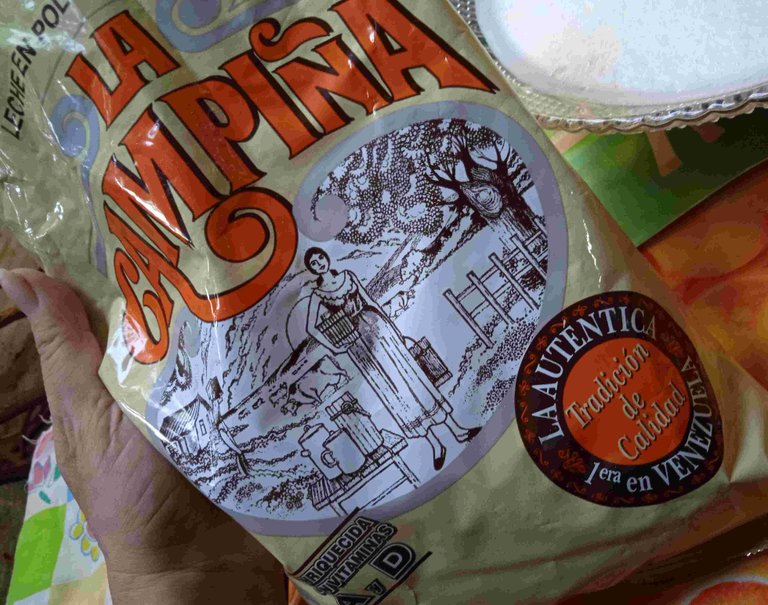
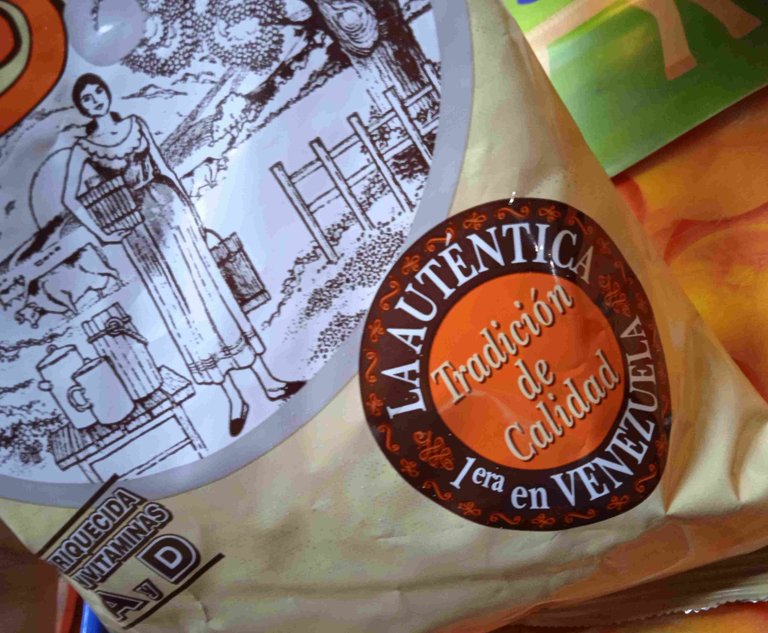
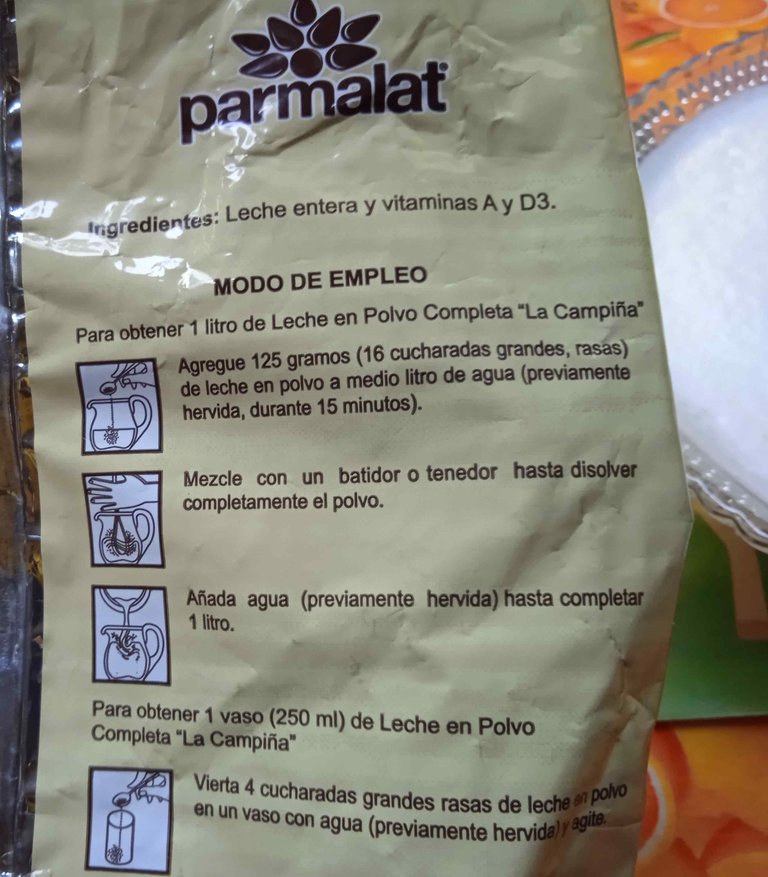

La leche debe tener una temperatura cercana a los 45 grados centígrados, puede usarse un termómetro de cocina, pero yo lo sé colocando un poco en el dorso de mi mano y si está tibia, inclinándose a caliente, está bien para añadir el yogurt. La leche no puede estar fría, porque los lactocultivos no se desarrollarán bien, ni muy caliente porque los lactocultivos morirán. También recomiendo usar recipiente de vidrio o de acero inoxidable, aunque me gusta más de vidrio. Con estos materiales no se generarán reacciones indeseadas.
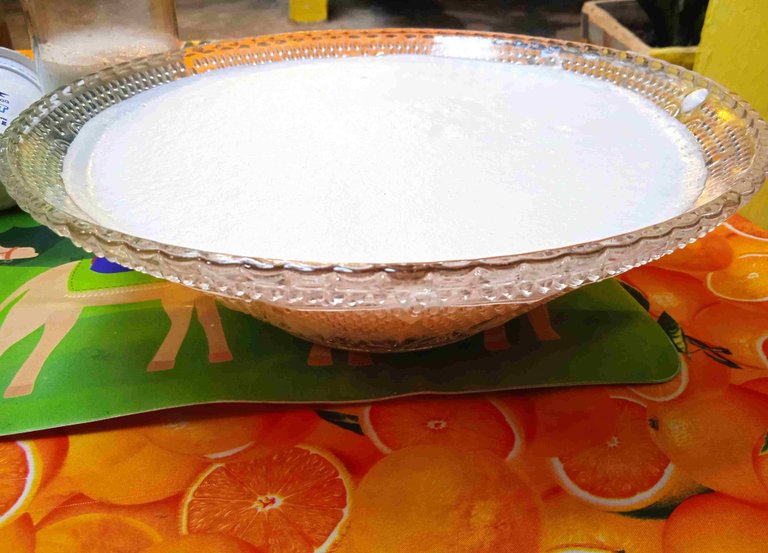

Lo siguiente es añadir el yogurt. Es recomendable usar un 15% del volumen de leche en yogurt, porque será suficiente para que las bacterias colonicen todo el sustratoe. En este caso hay un litro de leche y añadí 150 ml de yogurt firme natural. Remover bien, para que se integre todo, Aquí utilicé una marca que me pareció aceptable. Yo solía usar la marca Yoka, pero ya no la consigo aquí, así que usé esta: LALO, con un costo de 1.5 $ USD. Me llamó la atención que tiene una capa gruesa en la parte superior, por lo que creo que allí se concentra la mayor cantidad de bacterias o lacto cultivos. Debajo de esa capa está el resto del yogurt, cremoso y firme.
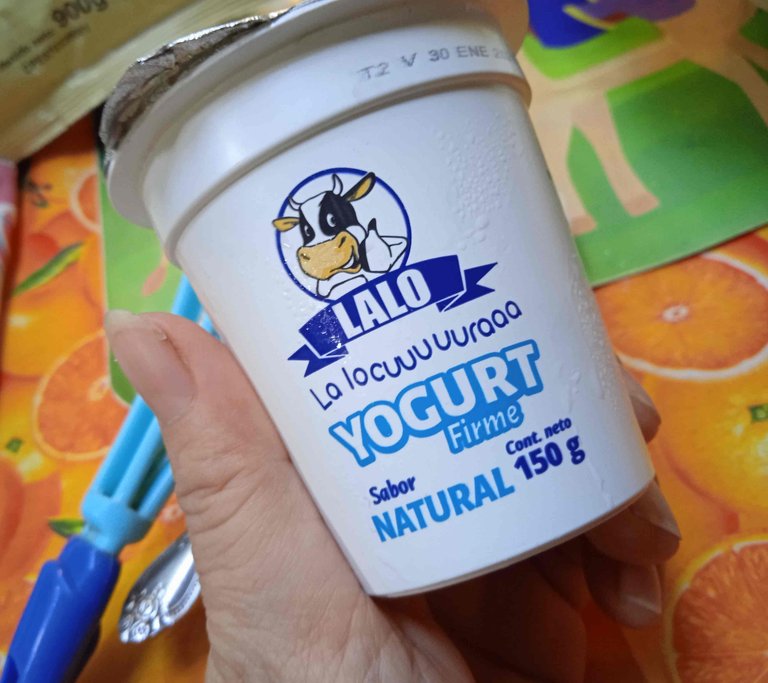

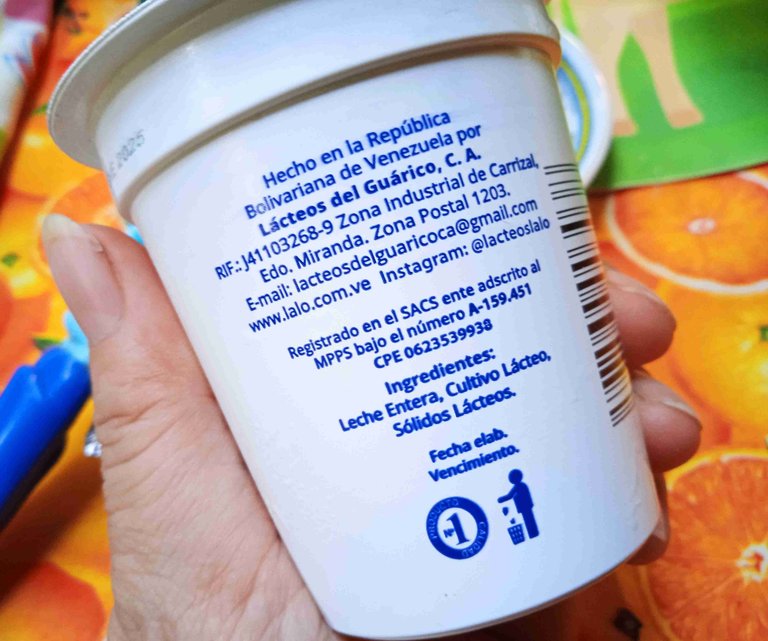
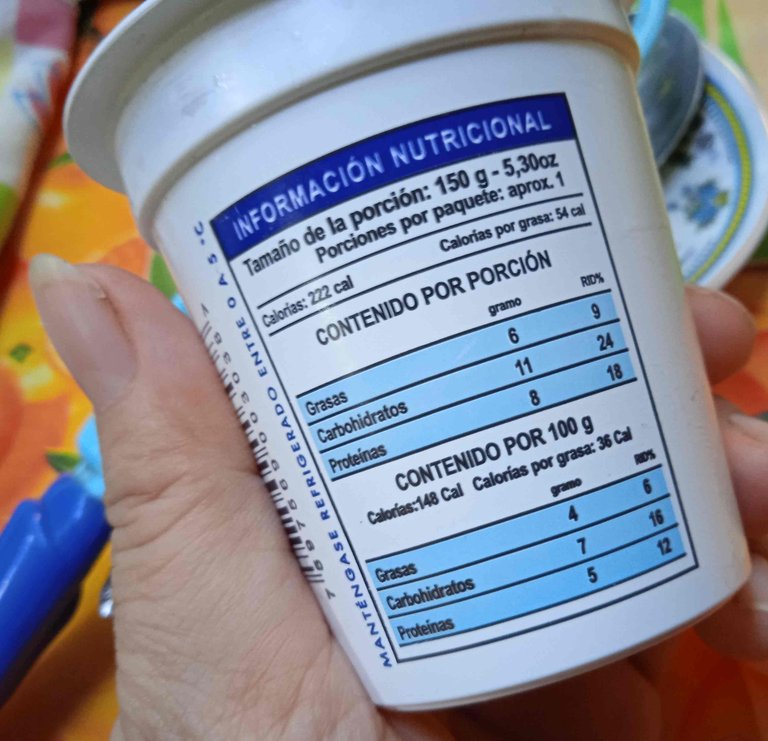
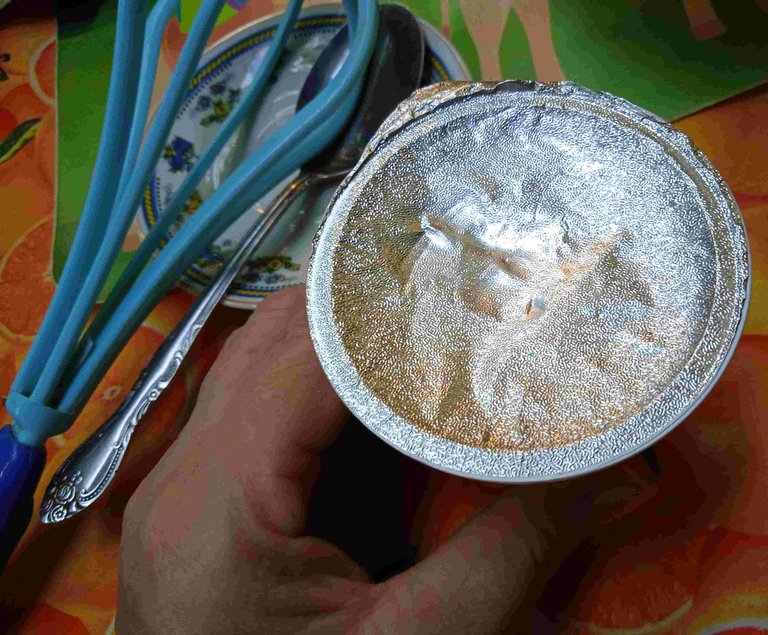
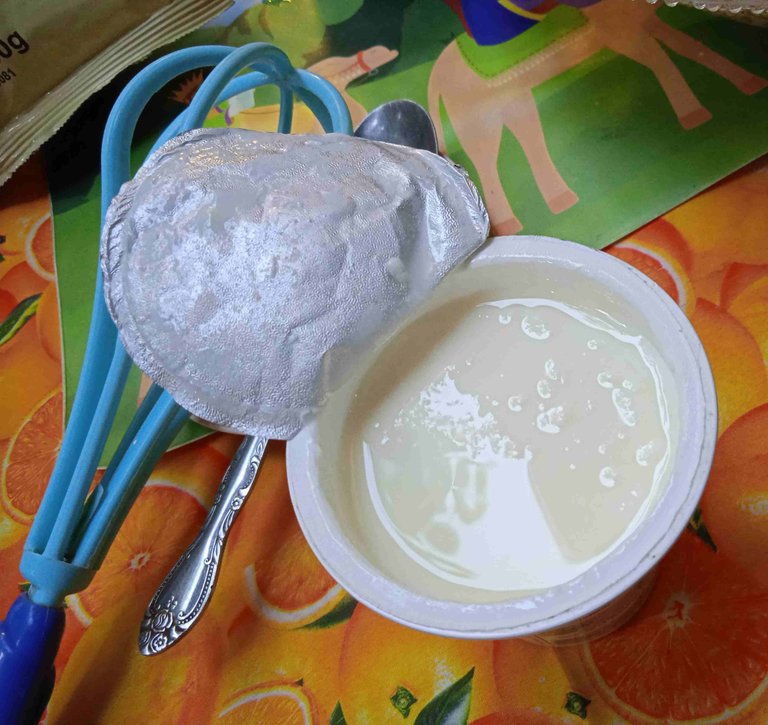
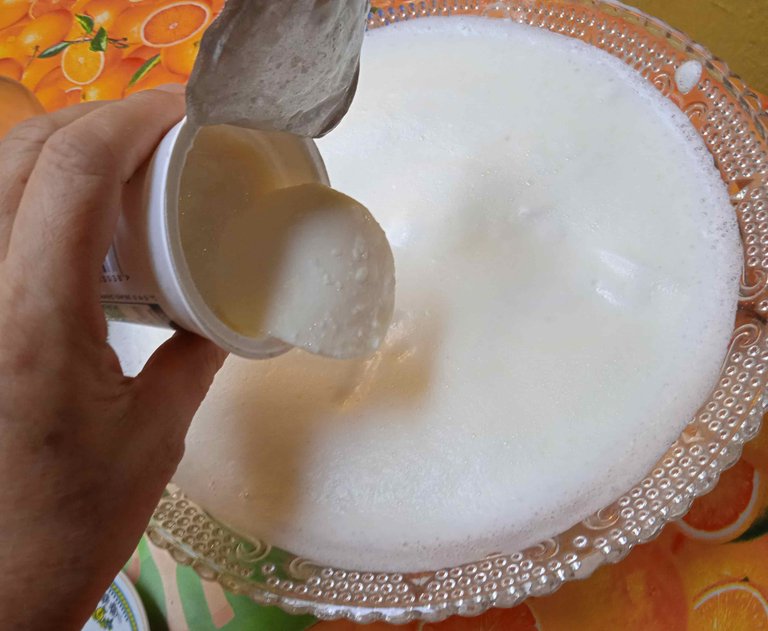
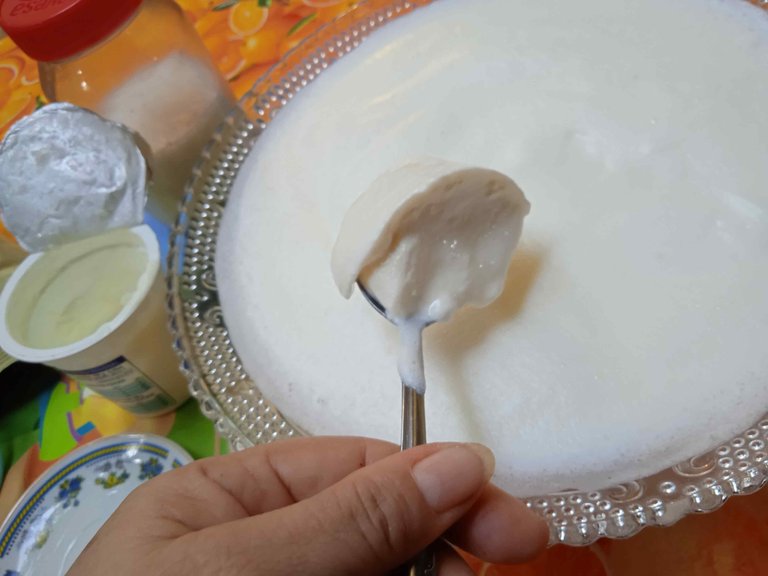
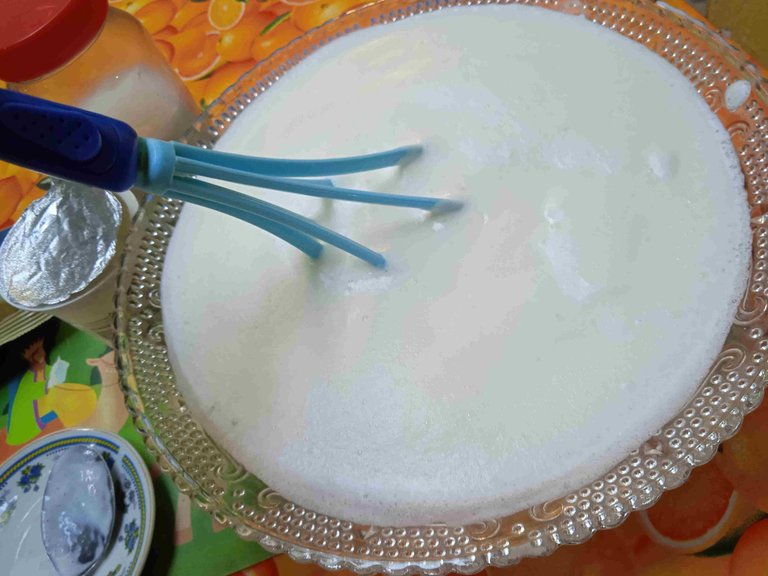

A continuación es necesario tapar el recipiente, pero no herméticamente, para que pueda ocurrir un intercambio de gases. Después es muy importante arropar la mezcla, cubrirla con un mantel para que quede abrigada, y llevarla a un sitio oscuro y cálido, (yo lo coloco en el horno de la cocina, obviamente apagado), para que descanse y se desarrollen las bacterias adecuadamente. El lapso mínimo recomendable para la fermentación es de 8 horas, pero a mí me gusta dejarlo más tiempo, 16 horas.
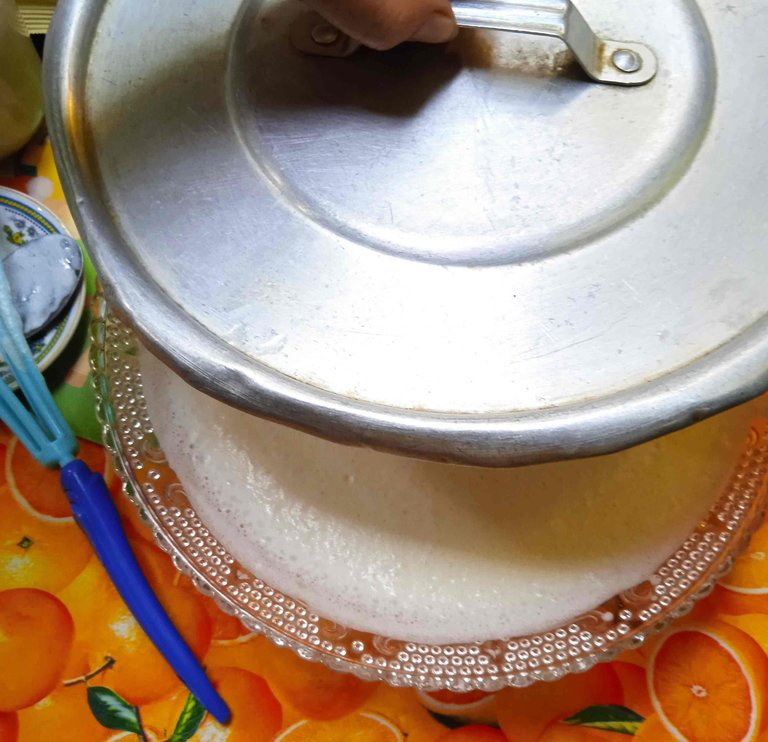
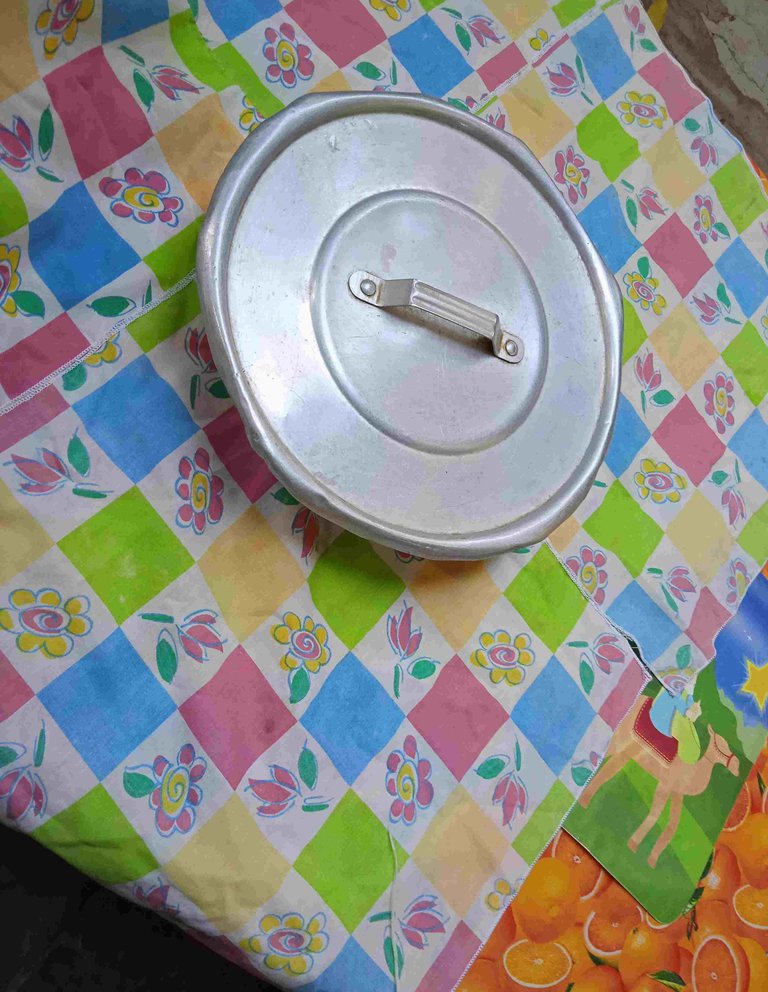
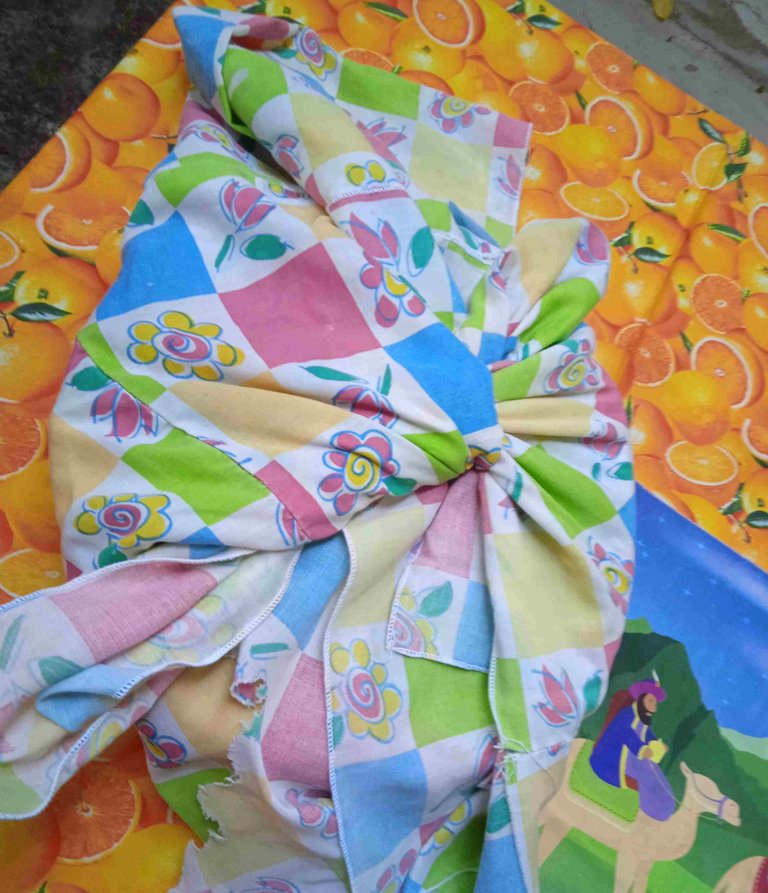


Transcurrido el tiempo de fermentación, sacar el recipiente y destaparlo, y… ¡tarán! Aquí está ya el yogurt firme, cremoso, delicioso, suave. Si observan bien, está homogéneo y liso, no hay huequitos ni hay suero por encima. Miren lo firme que es, su textura es similar, aunque menos firme, que la gelatina. Ya sólo es necesario servirlo, en este caso le añadí miel, y así queda ultradelicioso. NOTA: Una porción de este yogurt puede utilizarse para volver a preparar más yogurt .
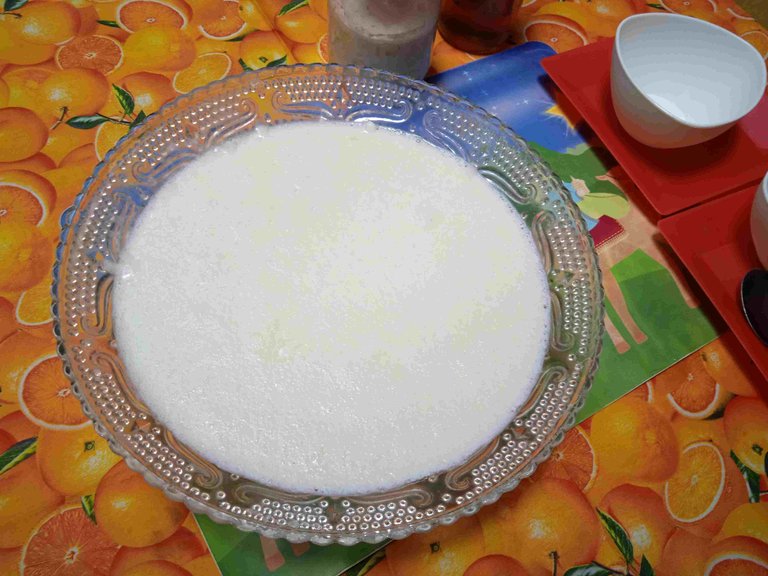
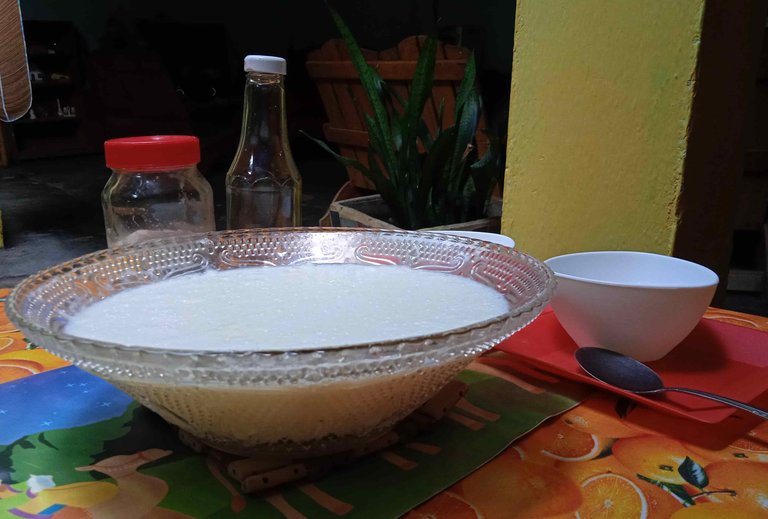
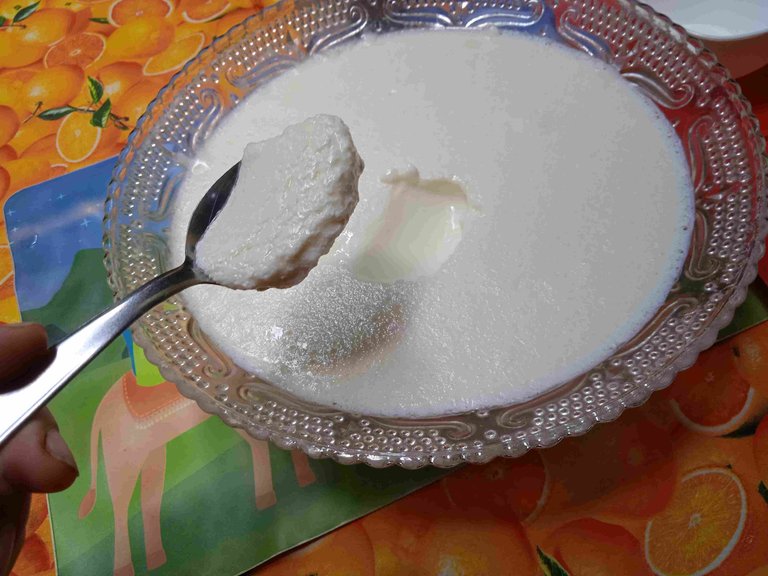
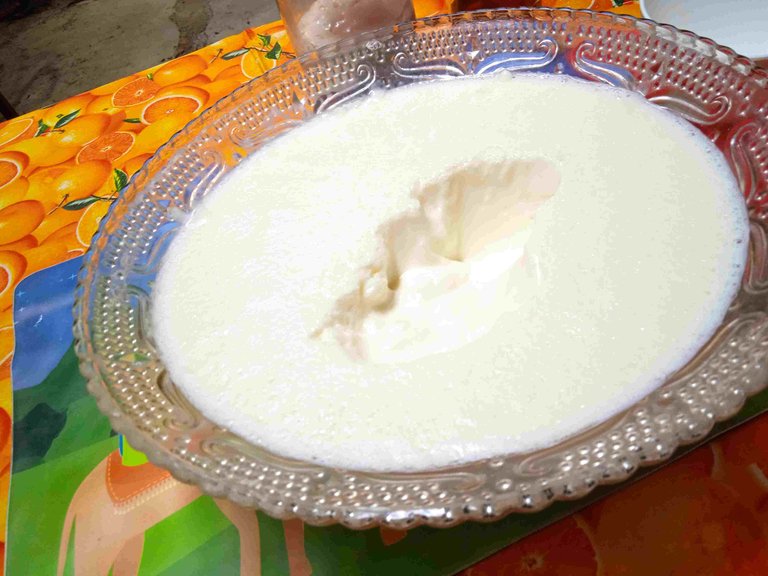
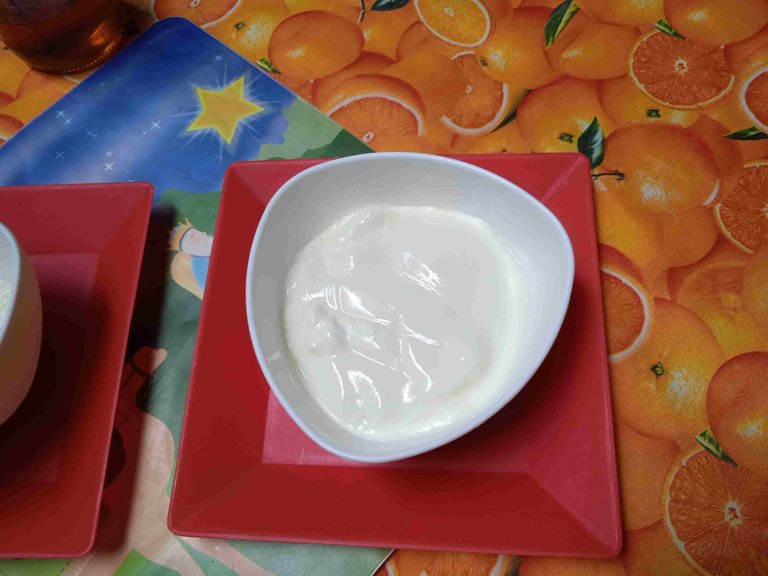
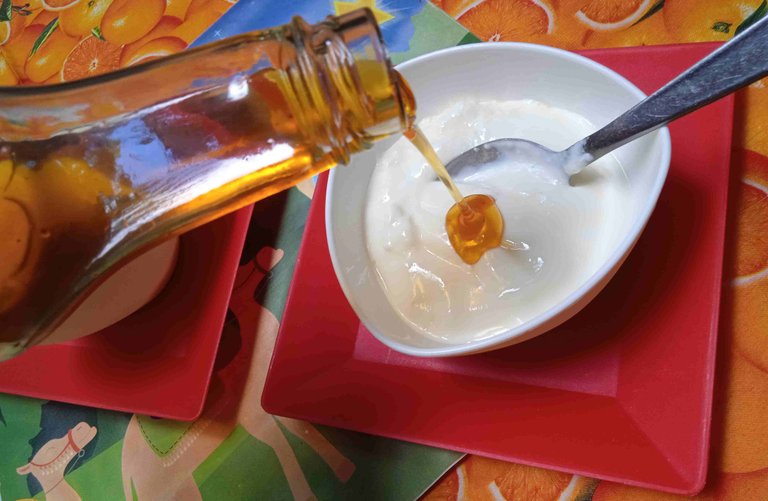
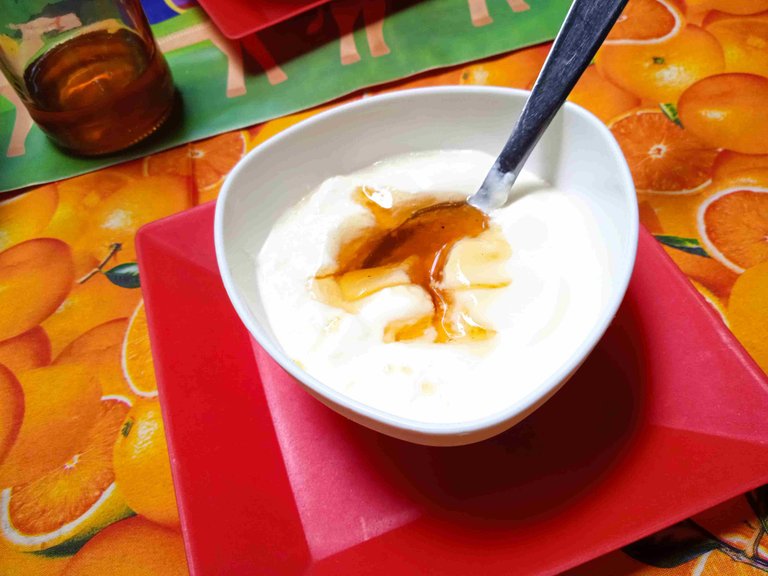

Aquí quiero compartir con ustedes un experimento que hice. Recientemente compré unos probióticos, los cuales no toleré, con decirles que los pude tomar sólo tres días, porque de hecho me bajó la tensión, y creo que fue porque no comí los suficientes prebióticos en esos días. Recordemos que para que los probióticos puedan funcionar, requieren tener prebióticos. Los prebióticos son fibras vegetales, por ejemplo legumbres, verduras, frutas, etc., en resumen, creo que éstos son prebióticos con una alta concentración. La cepa es Lactobacillus acidophillus, la cual aunque es similar, más no igual a los que están en el yogurt. En el yogurt conseguimos otras cepas: Streptococcus thermophilus, Lactobacillus delbrueckii ssp. bulgaricus, L. casei y Bifidobacterium bifidus.
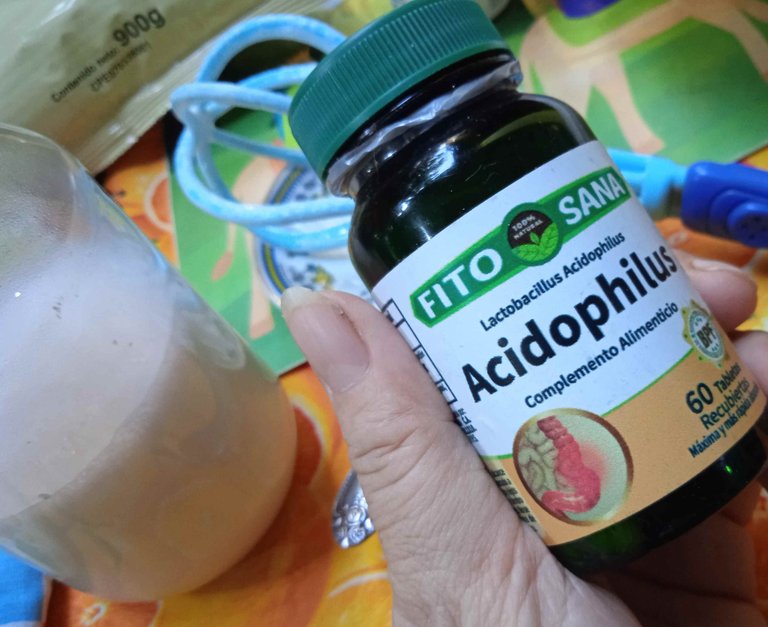
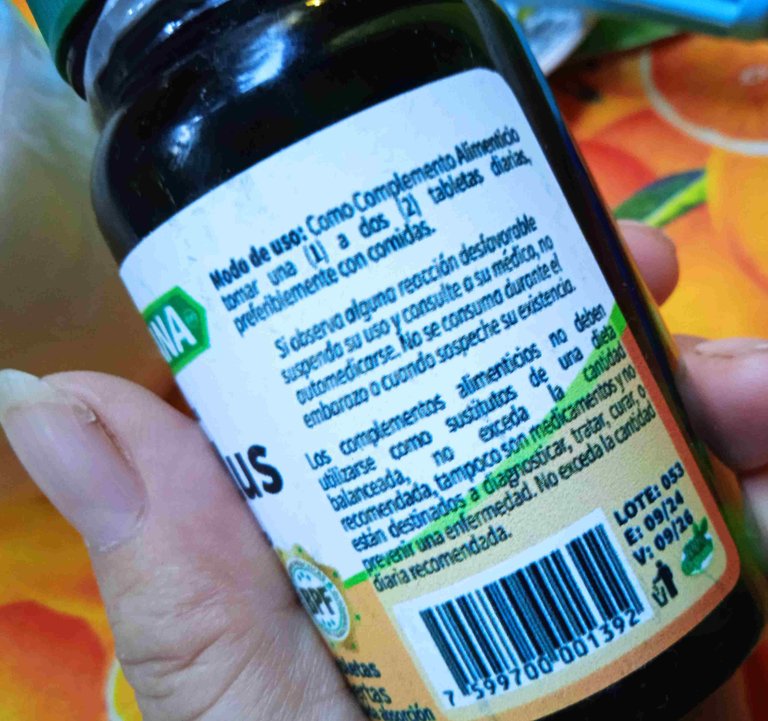
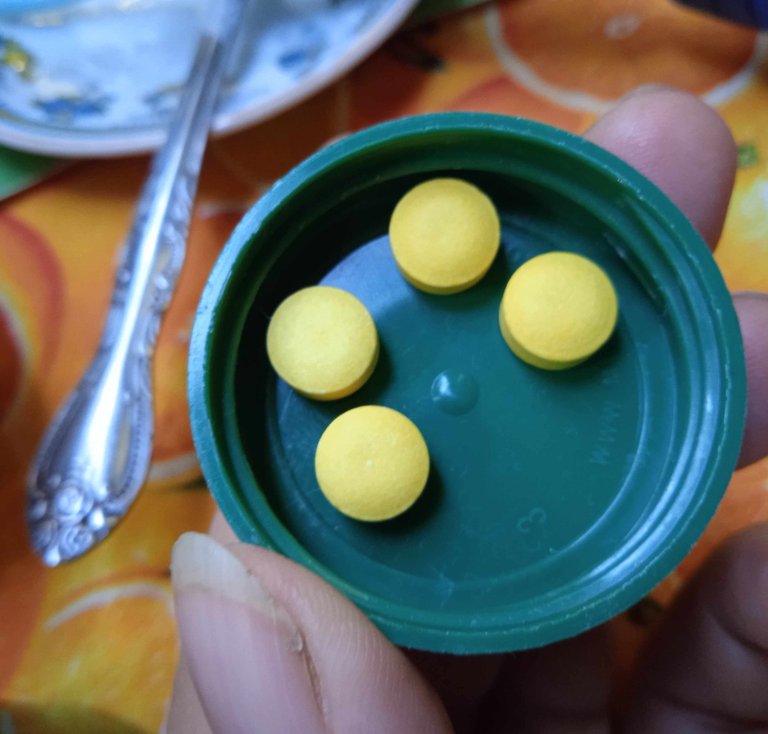

El experimento consistió en añadir un comprimido de estos probióticos a una taza de leche de iguales características a la que usé con el yogurt. La coloqué en un frasco de vidrio, el cual no tapé completamente, para que se produjera el intercambio gaseoso. Igualmente arropé este frasco y lo llevé al horno (apagado), junto al yogurt.
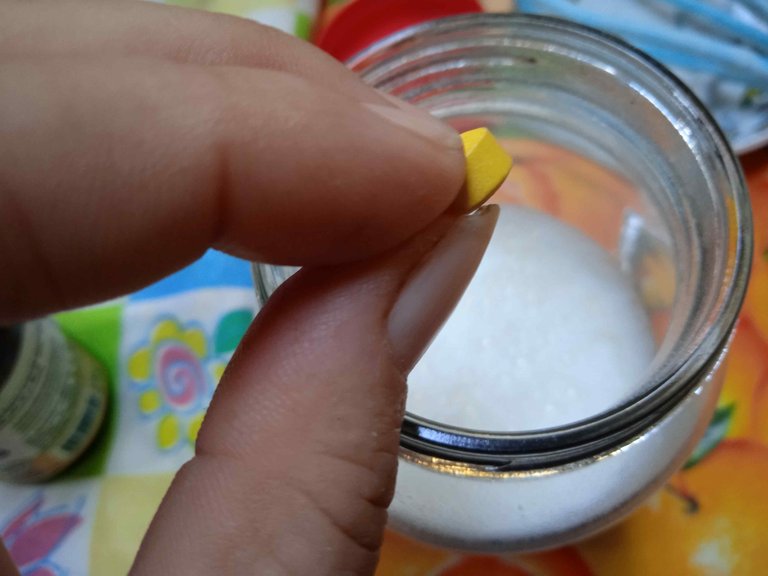
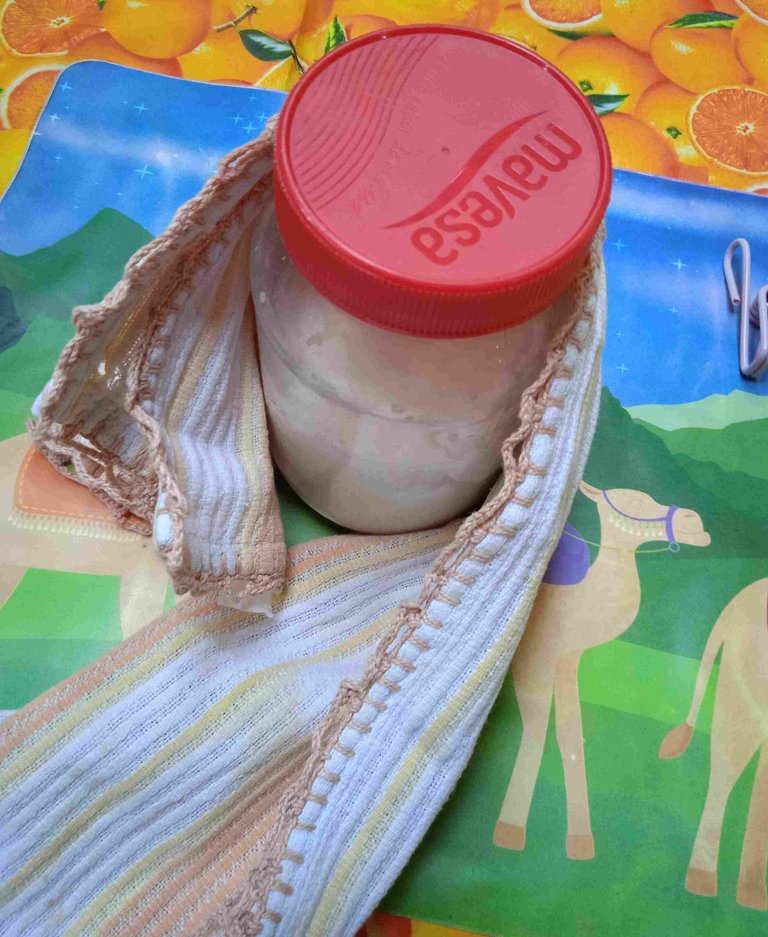
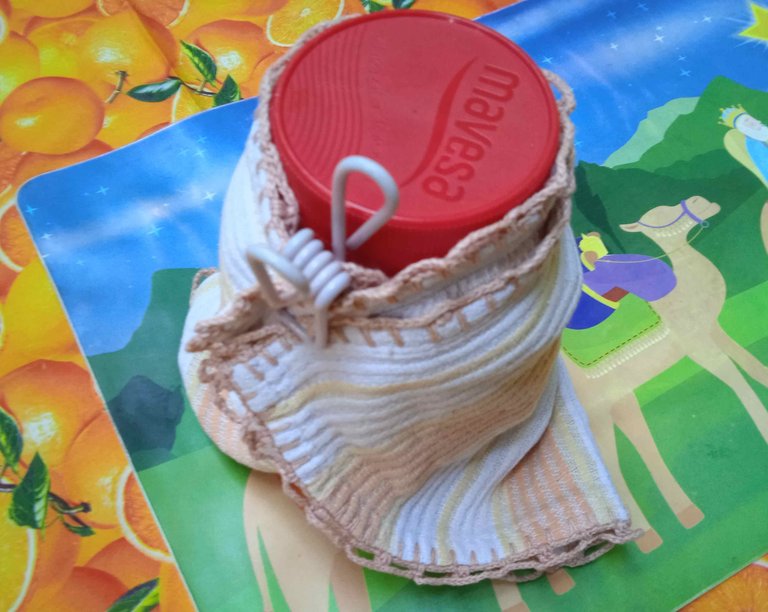

Al sacar el frasco puedo ver que la fermentación es diferente, aquí sí son notorios unos pequeños hoyuelos en la leche, el suero que se desprende de la fermentación también es más visible, la textura es granulosa no uniforme como el yogurt. El sabor es distinto, y también es suave, no es desagradable, especialmente si se le añade miel. Esto no puede considerarse estrictamente un yogurt, porque los lactobacilos son diferentes. Quizás de esta forma pueda tolerar mejor estos probióticos. Antes de terminar, recuerden que el yogurt y cualquier otra preparación similar, deben estar refrigerados más no congelados para que no se deterioren, ya que el exceso de frío mata a las bacterias y el exceso de calor también las mata.
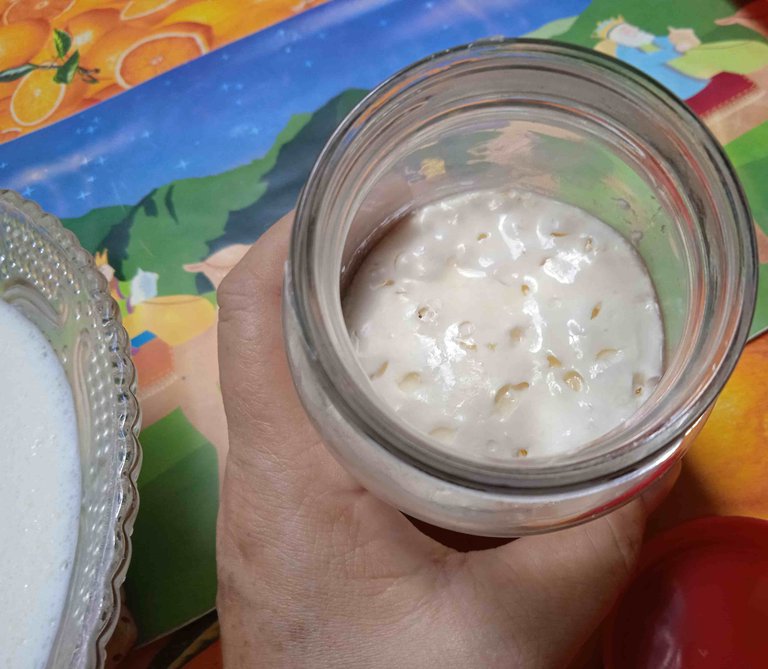
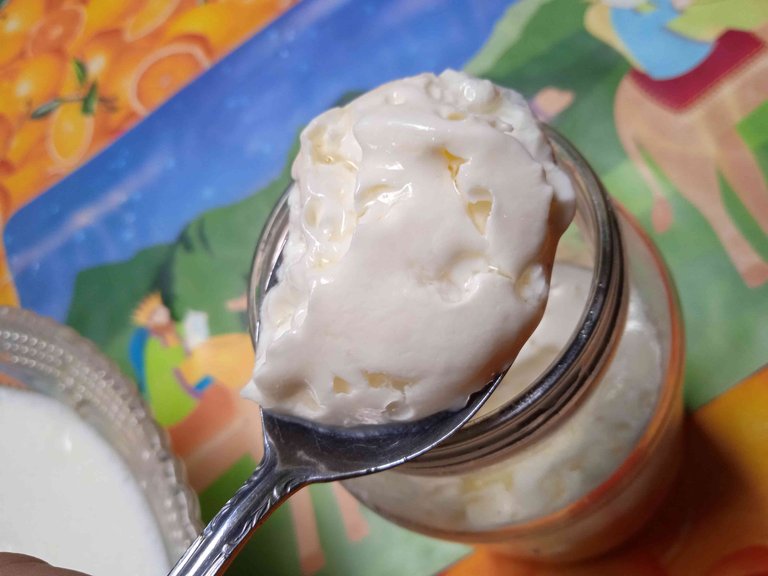
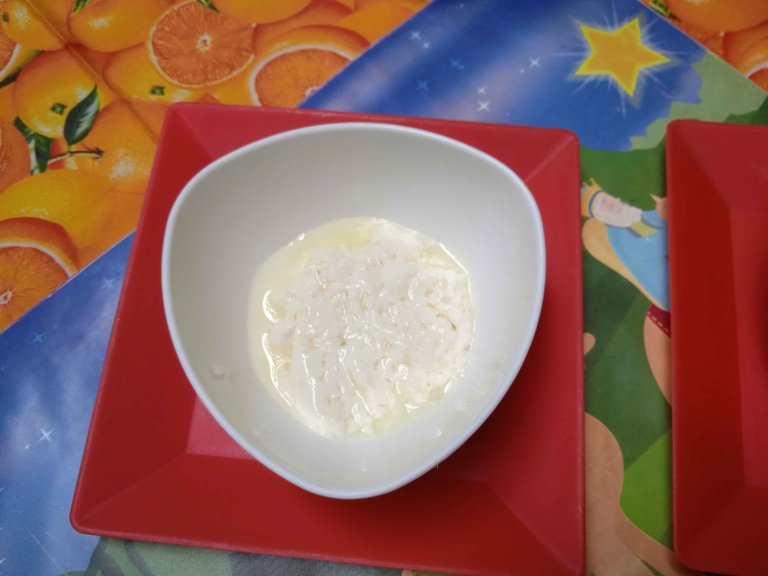
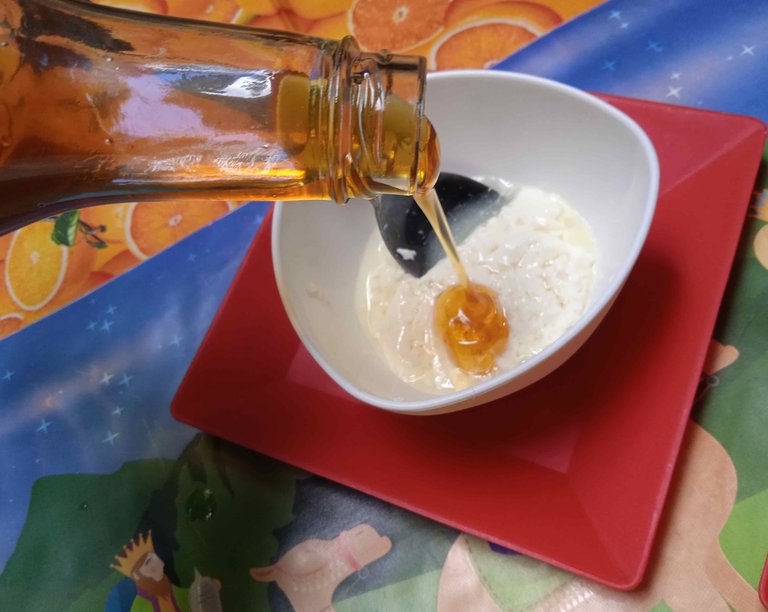
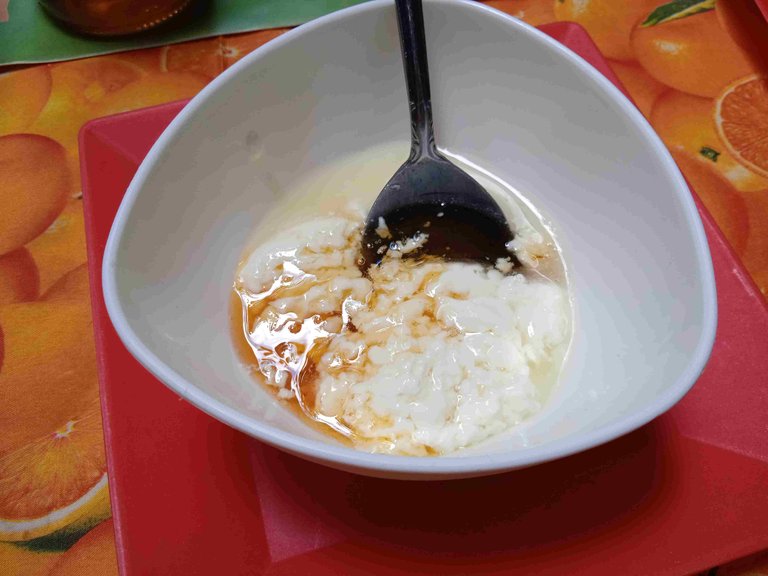

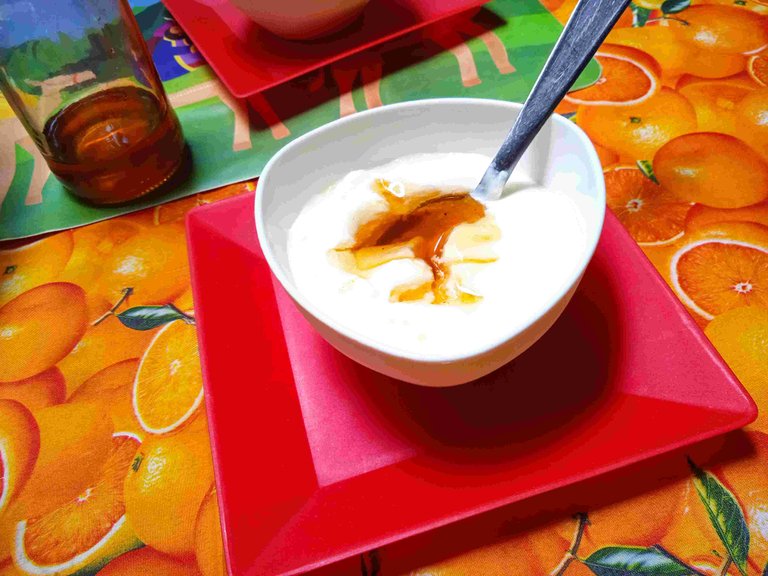
Aquí termino mi post de hoy, en el cual les he ofrecido parte de mis recuerdos de infancia, así como una receta muy sencilla y saludable, que debería estar en nuestras neveras siempre. Me despido, deseando salud, prosperidad y alegría para todos ustedes; y recuerden: No todos los días son iguales y más importante aún: Todo lo que das, todo lo que haces, inexorablemente volverá a ti. ¡Abrazos!

These photos are my own, and were taken with a Xiaomi REDMI NOTE 9A phone / Estas fotos son de mi propiedad, y las tomé con un smarthone Xiaomi REDMI NOTE 9A
This time I'm using a divider that @doriangel gave me. Thank you very much for this beautiful gift. / En esta ocasión estoy usando un divisor que me obsequió @doriangel. Muchas gracias por este bello regalo.

Todo el contenido es de mi propiedad y está sujeto a derechos de autor // All content is my property and subject to copyrigh



 Delegations welcome!
Delegations welcome!

Congratulations @sirenahippie! You have completed the following achievement on the Hive blockchain And have been rewarded with New badge(s)
Your next payout target is 12000 HP.
The unit is Hive Power equivalent because post and comment rewards can be split into HP and HBD
You can view your badges on your board and compare yourself to others in the Ranking
If you no longer want to receive notifications, reply to this comment with the word
STOPThanks a lot @hivebuzz
Wow your grandfather is very great to be able to live in a new country growing up well, of course your family is also very good to accept grandfather in your home. Moreover, being directly connected to the kitchen is a very nice thing, isn't it? Happy start of the year for you and your family. Glad to see your yogurt worked out, I've never tried making yogurt. Here yogurt is very expensive and only available in the city!
My grandfather had a separate apartment, he didn't live with us, in fact, he lived in another city, close to his work, but he was part of our family. He was always a very hardworking man, who was able to live from his work, when my country was in better conditions. He has been dead for several years now, but his memory still remains with us.
Try making yogurt, you can actually use the new culture to make more yogurt. I can't get the vegan cultures here, to make a real vegan yogurt, but I will keep experimenting.
Thanks for your visit @nurfay, hugs!
Wow, your grandfather is a great man, you and your family must be very proud to have him!!!
I will try yogurt next time and I have to buy it in town and I don't know if it has the best culture here!!.
You have shared a wonderful recipe. My son loves to eat curd.Though I have to buy it from the market.But the market stuff is adulterated.I will definitely try your wonderful curd recipe at home.In fact I am inspired to make new recipes from you.Thank you so much for sharing.
Thank you very much for your nice comment @sumaiya777
I hope you can make this recipe. You can use goat or sheep milk too.
Greetings!
Así lo hacía antes mi mamá pero con yoka, es la misma receta es muy bueno, queda firme.
Creo que la magia lo hace la leche la campiña.
Pregunta: cómo queda de acidez??
Hola @kyleana
Queda excelente, con un equilibrio muy bueno entre la cremosidad y la acidez, incluso, se puede comer sin añadir ningún elemento dulce.
Siempre que se use un buen cultivo y un buen sustrato, el resultado será muy bueno, y sí, la Leche La Campiña es de lo mejor, nada que ver con las fórmulas o sucedáneos lácteos que se consiguen en el mercado.
Gracias por pasar a leer y comentar.
Ahh entonces queda bien la acidez, mira que ese tema es terrible y meterle yogur a Santi ha sido difícil. Solo uno que otro. No he vuelto hacer por el firme. Anotaré tú marca
Hazle heladitos, o se lo mezclas con gelatina
Cuando puedas, por favor, me escribes por DM al Discord